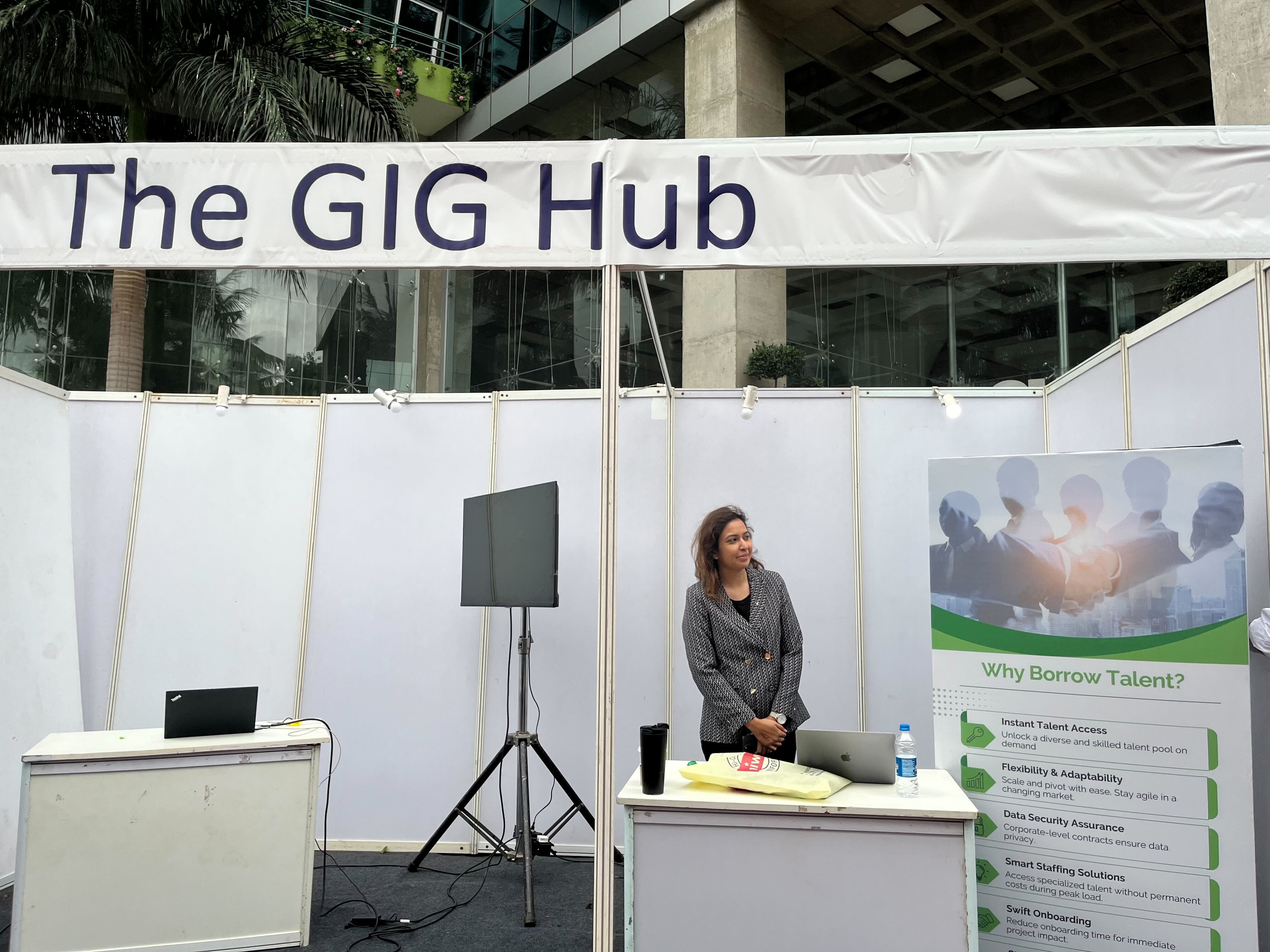Written by: Flexing It
25/09/2013
8 minutes read
![eye]() 34
34
![share]() 0shares
0shares
In our previous piece, we did a deep dive into 2 of the largest segments of freelancers: Corporate freelancers and young mothers/professionals opting to work independently due to personal commitments. In this piece, we take a look at a few counter-intuitive segments that we see emerge from the data i.e. the Perennial Freelancers (who have only ever worked independently), Entrepreneur Freelancers (taking on assignments to keep cashflows going) and Professional Moonlighters (freelancing alongside a mainstream profession for learning or an additional source of income).
Perennial freelancers
While thinking through the survey questions, the Flexing It team had made a list of all the potential segments of freelancers we could think of with the intent of sizing each segment. The Perennial freelancers, or those professionals who have been freelancing for their entire career, was not an explicit segment we defined, but feel its important to talk about given the responses we got.
One example of a perennial freelancer is Rajiv Khurana, a freelance HR, and Management Consultant, with more than 20 years of work experience. He works across Asia and Africa and has provided consulting and training services to corporations in more than 10 nations. Rajiv started his career as a typical college graduate – through campus placement with the Shriram Group but within a few years had started his own venture. His firm, The Personnel Lab, was one of the first few placement firms of Delhi and after a few years, he transitioned into hardcore HR Consulting and Management Training. Today, Rajiv works with senior management teams of leading companies on an assignment basis and combines that with pro-bono work including career counseling for the youth.
For R Srinivasan, a freelance management consultant from Hyderabad, the desire to be a solo freelancing entrepreneur emerged from his frustrating experience with the politics of corporate and academic careers. He worked with the Administrative Staff College of India (ASCI), but quit soon to start his own management consulting practice. He admits, “When I started my business as a consultant in 1982, I had no bank balance, no guarantee of monthly income and a wife and two kids aged 3.5 and 2.5 years”. With management consulting not being an established profession in the 1980s, he found the initial assignment hunting very challenging. He says, “everyone I met offered me a job…I realized that they want a manager and not a consultant and decided to offer my managerial services on a freelance basis instead of on a salary basis”. Today, in addition to being a freelance management consultant, he regularly writes for magazines and newspapers and speaks at industry events.
For both Rajiv and Srinivasan one of the most significant benefits of freelancing has been better control of how they spend time on both work and personal life. Srinivasan points out that since his contractual relations with his clients were based on a project mode the daily schedule was left to him to organize. Rajiv believes “ the advantage of working for myself has made me balance my personal and professional lives better”. He manages to find time to write books, regularly publish columns, anchor radio and TV shows, and devote time to not-for-profits he works with - and all this alongside his mainstream profession!
Bitten by the entrepreneurial bug
From our early survey findings, we are intrigued to find that 11% of freelancing professionals in India are entrepreneurs[1], who are freelancing to keep cash flows going, while they also nurture their ventures. This segment shows a lot more homogeneity than the others though with 60% drawn from three functional areas – strategy/business development, general management and IT. 75% of the professionals in this segment are men with a majority belonging to the 5 to 10 years experience range, indicating that many young professionals are branching out to be entrepreneurs.
Dhruv Swamini is amongst the 25% of the women in this group and is leveraging freelancing to support her entrepreneurial ambitions. An ex-consultant with McKinsey & Company, her decision to start working independently was prompted by the need to generate cash flows to get her start-up, a sports venture, DUPLAYS, off the ground, as well as the availability of some free time in the initial stages. Dhruv believes that having an office-like setting and schedule is critical to maintaining discipline and has structurally set aside some space in her home to act as her office. The availability of leisure and the ability to pace yourself are the greatest benefits of working independently, according to her. But she adds a word of caution as well - freelancers should be prepared to work without an office space, ready to face the fluctuations in the cash flows and the uncertainty of finding one project after another.
Ravi Handa creates content and study material for online courses for CAT, which he directly markets to students and also takes on assignments to develop material for specific clients. For Ravi the desire to take on independent assignments came from the aspiration to earn more - an aspiration he has achieved as he says in his own words - "The cash flows are great and I am enjoying my life more than ever before". Like Dhruv, Ravi also believes discipline is critical to ensure that you remain true to your commitments to clients. For him, the greatest need of the hour for freelancers is a mechanism that allows easy billing and collections from clients.
Professional Moonlighters
Uday Lakkar works in a full-time job as a PE investor and freelances on weekends. He takes up assignments as faculty and does consult to help individuals raise funds for new ventures. He is also thinking of starting his own company and therefore is looking to both expand his network, and have an additional source of income. Most of his assignments are as visiting faculty which Uday finds very satisfying, plus they help improve his public speaking skills. He points out that, in such an arrangement, even if one doesn’t like one’s day job, one may find this very satisfying as it’s something that one is passionate about. However, what one needs to watch out for is that it has to be a source of pleasure and inspiration and that the primary job should not suffer.
Ankit Dembla is an advertising professional and started taking on freelance projects along with his work as they formed the kind of work he wanted to do such as UI designing to animation, music cover releases and much more. Ankit says “I can choose projects of my choice and complete them in less time – so cash flows are much better than before... and above everything, the work I am doing is exactly what I wanted in my portfolio. ”
Uday and Ankit form part of the professional moonlighters' segment who are actively seeking to leverage their skills meaningfully over and above their regular assignments both to derive cash flows but also to strengthen their portfolio of work. In our survey, this emerged as the 6th largest segment of freelancers with close to 7% of the respondents.
So where do we go from here…..
Freelancing in India is still in a nascent stage. As we had shared in our previous pieces, barring the creative freelancers, 50-60% of those in the other segments have started working independently within the last 2 years. What is great to see is the extremely high degree of optimism (80-90% across segments) professionals have for their future as freelancers. The value of time, experienced in better control over one’s schedule and work, has been pointed out by most freelancers as its biggest benefit.
But alongside this optimism, most freelancers indicate that one needs to be prepared to take the plunge and be sure of moving into it. Taking an owner or entrepreneurs mindset to your portfolio or work, active networking and a lot of discipline are all musts as per successful freelancers and we spoke about these aspects briefly in our last piece too. Here, we look to end by sharing what we heard from respondents as to what would make them more effective and efficient professionally.
First, mechanisms and support for lead generation and business development. A freelancer has to constantly think of his/her future pipeline much like a business and so platforms and events where freelancers could come in contact with potential clients and other freelancers would be useful.
Second, organized vehicles that provide access to a range of critical accounting and administrative services such as taxes, billing, maintaining your books of accounts could improve effectiveness significantly. In India, there are also lots of contractual and legal issues that need to be thought through such as ownership of any IP created, benefits a consultant/contractor is entitled to as there are no industry benchmarks on these.
Finally access to infrastructure, office space and a like-minded community! Freelancing can be lonely and co-working spaces have the added benefit of providing the opportunity to meet people in addition to providing an efficient space to work.
The agenda to make freelancing and flexible working mainstream is a long one. So keep watching this space for our thoughts and do write in, to info@flexingit.com with yours!
[1] Results of Primary Survey conducted by www.flexingit.com





 `
`  34
34
 0shares
0shares





